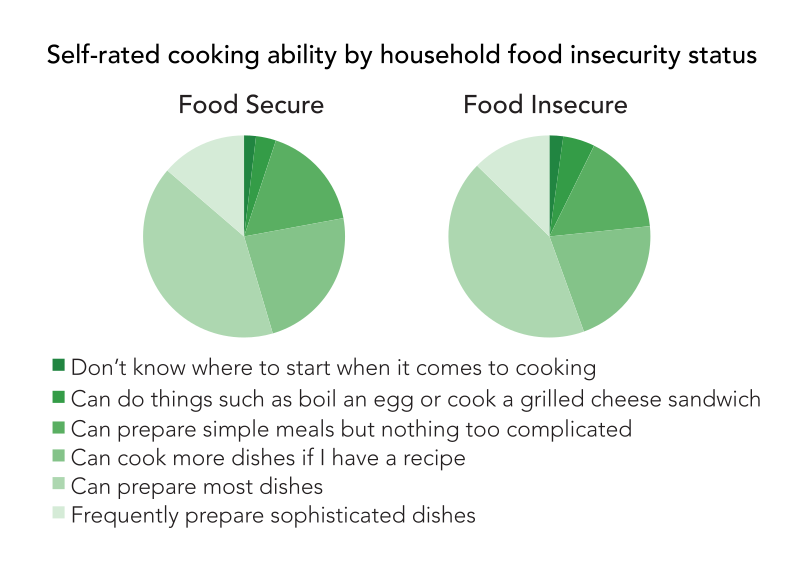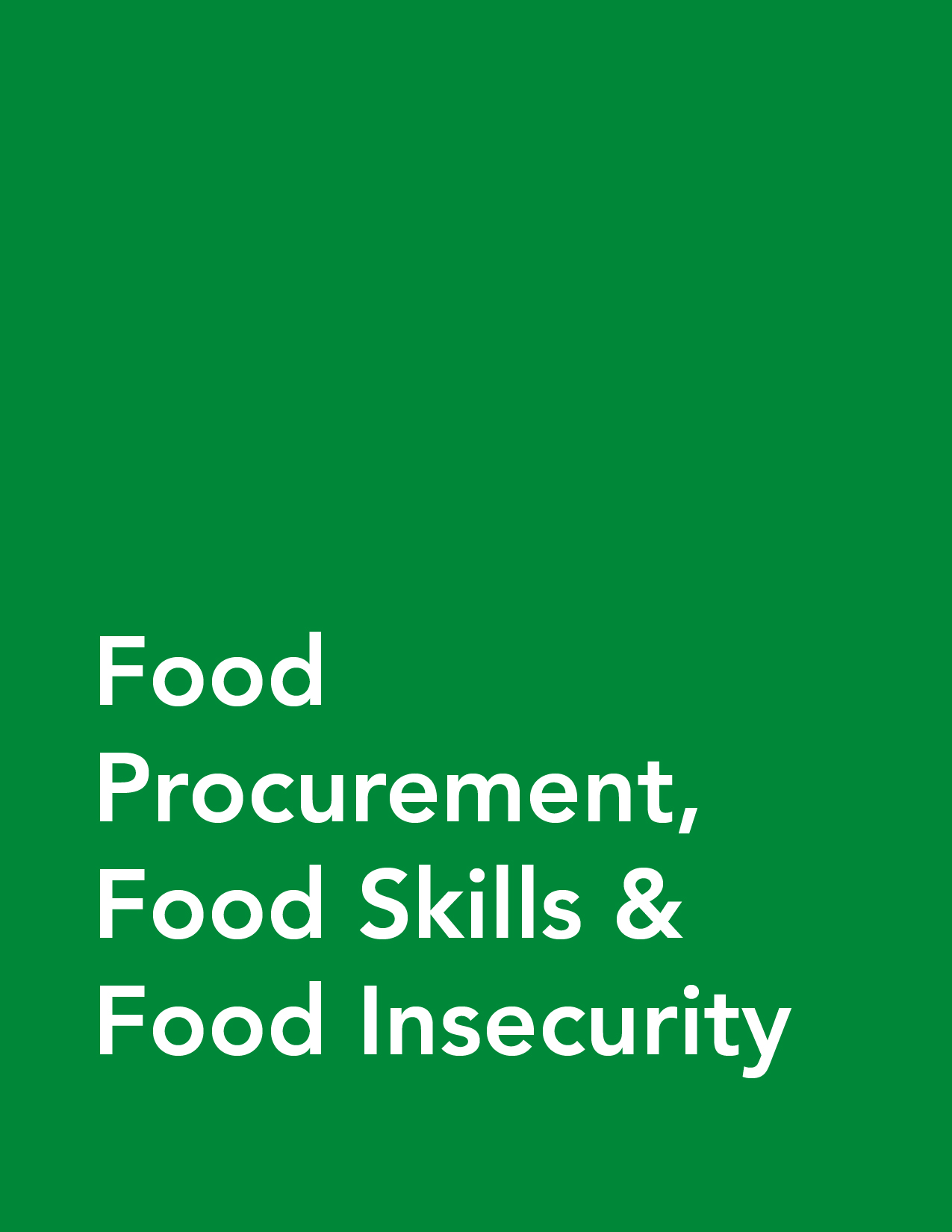Food Procurement, Food Skills & Food Insecurity
March 13, 2017
Food insecurity – the inadequate or insecure access to food due to financial constraints – is a serious public health problem, with over 4 million Canadians living in food insecure households. It negatively impacts physical, mental, and social health, and costs our healthcare system considerably.
Statistics Canada began monitoring food insecurity in 2005 through the Canadian Community Health Survey (CCHS). In 2012 and 2013, questions were included on the CCHS to assess the food skills and practices of adults with a sample of 10,000 Canadians for each year. This factsheet summarizes the findings from a recent study using that data.1
Food Purchasing
The vast majority (84%) of adults in food insecure households report shopping with a budget on how much they can spend on food, but only 43% of adults in food secure households say they do this.
The two groups do not differ when it comes to other shopping behaviours, like planning meals before shopping, using a written grocery list, or using Canada’s Food Guide.
Food Preparation Skills
Adults in food insecure households do not report having lower food preparation skills than those in food secure households. In fact, most Canadian adults, regardless of food insecurity status, considered themselves highly skilled at various aspects of food preparation.
Cooking Ability
The cooking abilities of adults in food insecure households are similar to those in food secure households. In fact, very few Canadian adults, regardless of food insecurity status, report not knowing where to start when it comes to cooking.

Recipe Adjustment
Almost two-thirds of Canadian adults report adjusting recipes to make them healthier by reducing fat, salt, or sugar, and those in food insecure households are not any less likely to do so.
Gardening
Although Canadian adults in food insecure households are less likely to garden for food than those in food secure households, there is no indication that gardening for food protects households from food insecurity.
Reducing Food Insecurity
Canadian adults in food insecure households do not have poorer food skills than those in food secure households. There is no indication that food insecurity is rooted in a lack of food skills or that gardening for food protects households from food insecurity.
While interventions designed to increase food skills and promote gardening for food are important in reaching other public health goals like increasing fruit and vegetable consumption, the findings here suggest that such interventions are unlikely to impact food insecurity rates in Canada.
For more information about this research, see:
- Huisken, Anne, Sarah K. Orr, and Valerie Tarasuk. Adults’ food skills and use of gardens are not associated with household food insecurity in Canada. Canadian Journal of Public Health 107.6 (2016): e526-e532.
Listen to PROOF Principal Investigator, Valerie Tarasuk, discuss the findings and importance of this research.(5 minutes) [Download MP3]

